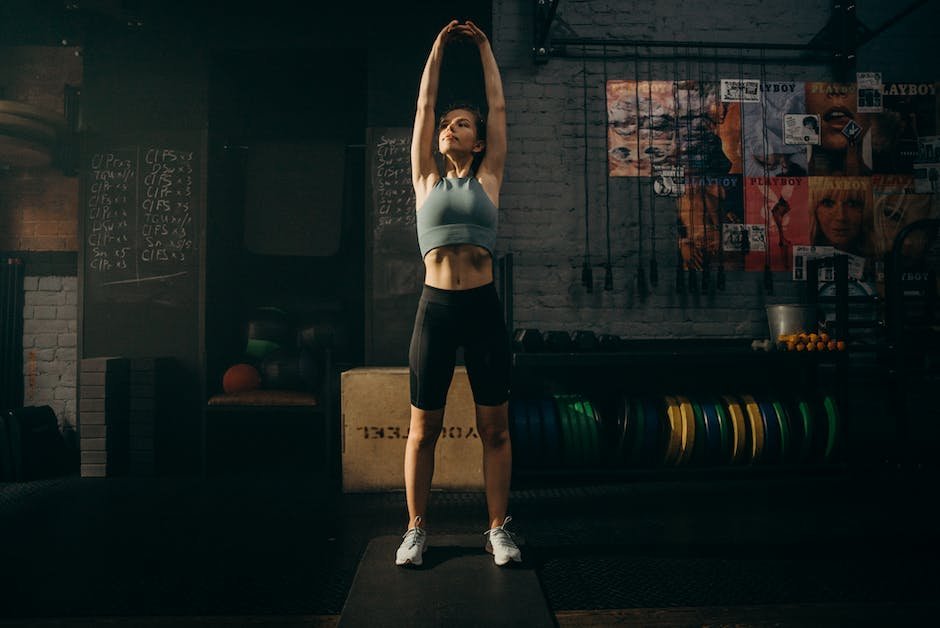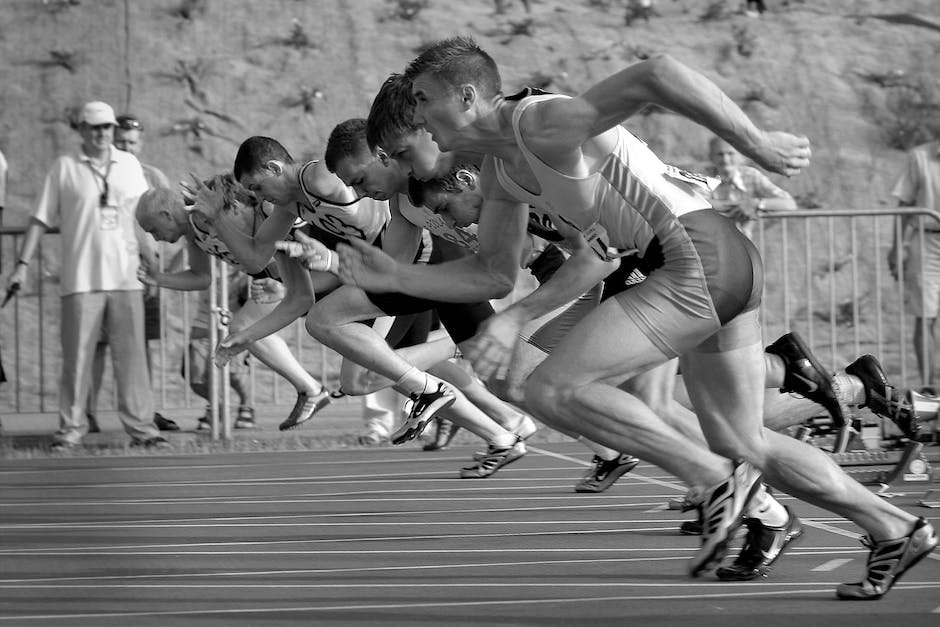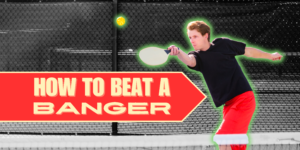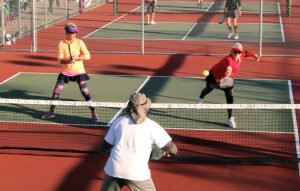In the world of Pickleball, where agility meets strategy and volleys reverberate through the air, the art of warming up and cooling down can often be overshadowed by the sheer excitement of the game. Picture this: a sunny afternoon, a buzzing court, and players ready to take on the challenge, their paddles in hand and adrenaline coursing through their veins. However, amidst all the fervor and anticipation, it becomes easy to overlook the crucial rituals that lay the groundwork for peak performance and prioritize injury prevention. Today, we delve into the depths of the seemingly mundane but inherently indispensable routines of warming up and cooling down in Pickleball. Let us unveil the secrets behind these vital bookends that bridge the gap between a blissful match and a potentially debilitating experience.
Table of Contents
- Why Warming Up Properly is Crucial in Pickleball
- Preventing Injuries: The Role of Warm-up Exercises
- Maximizing Performance: The Benefits of a Dynamic Warm-up Routine
- Essential Warm-up Drills for Pickleball Players
- The Cooling Down Routine: An Often Overlooked Component in Pickleball Training
- Q&A
- The Way Forward

Why Warming Up Properly is Crucial in Pickleball
The importance of warming up properly before playing pickleball cannot be emphasized enough. While it may be tempting to skip this step and jump right into the game, taking the time to properly warm up can greatly enhance your performance and reduce the risk of injury. Here are a few reasons why warming up is crucial in pickleball:
1. Injury Prevention: Warming up allows your muscles and joints to gradually prepare for the physical demands of pickleball. It increases blood flow to your muscles, making them more supple and less prone to strains or tears. By warming up, you are priming your body for the movements and intensity required during the game, significantly reducing the risk of injury.
2. Improved Performance: A proper warm-up enhances your overall performance on the pickleball court. It helps increase your heart rate, breathing rate, and body temperature, preparing your body for optimal functioning. Warming up also improves your agility, speed, and reaction time, allowing you to move more efficiently and effectively during the game. Your shots will be more powerful, and your footwork will be more precise, giving you a competitive edge.
3. Mental Preparedness: Warming up not only benefits your physical readiness but also helps you get mentally prepared for the game ahead. It gives you a chance to focus your mind, hone your concentration, and shake off any pre-game jitters or distractions. By taking the time to warm up, you can improve your focus, decision-making abilities, and overall mental clarity, enabling you to perform at your best when it matters most.

Preventing Injuries: The Role of Warm-up Exercises
When it comes to physical activities, warm-up exercises play a crucial role in preventing injuries. A well-designed warm-up routine not only prepares your body for the upcoming physical exertion but also enhances performance and flexibility. It is a time to prepare both your mind and body for the challenges ahead, ensuring a safe and effective workout.
Benefits of Warm-up Exercises:
- Increased blood flow: Engaging in light cardio exercises, such as jogging or jumping jacks, raises your heart rate. This, in turn, boosts blood circulation, delivering oxygen and nutrients to your muscles, preventing potential strains.
- Enhanced flexibility: Dynamic stretching, a common component of warm-up exercises, helps loosen up your muscles and improves flexibility. This reduces the risk of muscle pulls or tears during vigorous physical activities.
- Improved joint mobility: Gentle joint rotations and movements included in warm-up exercises lubricate the joints, increasing their range of motion. This is particularly important for activities that require repetitive or extensive movements.
Regular warm-up exercises are a vital part of any fitness regimen. By spending just a few minutes warming up before your workout, you can significantly reduce the chances of sustaining injuries. Remember, taking the time to properly warm up is an investment in your well-being and long-term physical health.

Maximizing Performance: The Benefits of a Dynamic Warm-up Routine
When it comes to achieving peak performance, a dynamic warm-up routine can be the ultimate game-changer. Unlike static stretching, which focuses on holding stretches for a prolonged period, dynamic warm-ups involve moving the body through a range of motion, effectively preparing it for physical activity.
One of the key benefits of a dynamic warm-up routine is its ability to increase blood flow and oxygen supply to the muscles. This not only helps loosen up the muscles and joints but also enhances their flexibility and overall mobility. By engaging in dynamic movements, such as arm circles, leg swings, and torso rotations, the body is primed and ready to tackle intense physical activity with reduced risk of injury.
Furthermore, a dynamic warm-up routine contributes to improved nervous system activation. By incorporating movements that mimic those used during the main activity, such as high knees or walking lunges, the body and the brain establish a stronger connection. This heightened neural adaptation allows for better coordination, reaction time, and overall performance in various sports or physical activities.
Additionally, a dynamic warm-up routine helps to stimulate and prepare the cardiovascular system. By gradually increasing the heart rate, the body is better equipped to handle the demands of intense exercise. This results in improved oxygen consumption, enhanced endurance, and increased stamina.
In conclusion, a dynamic warm-up routine is essential for maximizing performance. From increasing blood flow and flexibility to enhancing neural adaptation and cardiovascular readiness, incorporating dynamic movements into your pre-exercise routine will undoubtedly lead to better overall performance and a reduced risk of injury. So, lace up your sneakers, get moving, and prepare to achieve your personal best!
Essential Warm-up Drills for Pickleball Players
Before diving into an intense game of pickleball, it is crucial for players to warm up and prepare their bodies for the physical demands of the sport. Here are some essential warm-up drills that every pickleball player should incorporate into their pre-game routine:
- Dynamic stretching: Start by gently moving your joints through a full range of motion to increase blood flow and flexibility. Perform exercises like arm circles, leg swings, and trunk rotations to activate the major muscle groups.
- Squats and lunges: These exercises help to warm up the lower body and improve stability. Incorporate bodyweight squats and lunges into your warm-up routine, ensuring proper form and control throughout each movement.
- Shoulder rotations: Since pickleball involves a lot of overhead shots, it is crucial to warm up the shoulder muscles. Perform shoulder rotations using a resistance band or light weights to strengthen and loosen the rotator cuff.
- Light cardio: Engage in a few minutes of low-intensity cardio to elevate your heart rate and prepare your body for the upcoming physical activity. Consider brisk walking, light jogging, or cycling as effective options.
Remember, warming up is not just about preventing injuries but also about increasing performance on the court. By incorporating these essential warm-up drills into your pre-game routine, you’ll be ready to dominate the pickleball court with agility, power, and precision. Stay active, stay warmed up!
The Cooling Down Routine: An Often Overlooked Component in Pickleball Training
Effective pickleball training involves more than just practicing shots and drills on the court. One component that is often overlooked but crucial to a well-rounded training regimen is the cooling down routine. While many players focus solely on the warm-up and main workout, neglecting the cool down can lead to increased risk of injury and limited recovery.
Why is the cooling down routine important?
- The cooling down routine allows your body to gradually return to its pre-exercise state, reducing the chances of post-workout muscle soreness and stiffness.
- It aids in the removal of waste products, such as lactic acid, from the muscles, helping to minimize muscle fatigue and cramping.
- A proper cool down allows for a gradual decrease in heart rate, preventing abrupt changes that can be taxing on the cardiovascular system.
Components of an effective cooling down routine:
- Light aerobic exercise: Engaging in low-intensity activities like jogging or brisk walking for 5-10 minutes can help slowly bring down your heart rate.
- Stretching: Perform static stretches for major muscle groups to improve flexibility and range of motion. Hold each stretch for about 30 seconds without bouncing.
- Self-massage: Use a foam roller or tennis ball to target areas of tightness and knots in your muscles. Applying gentle pressure to these areas can help relieve tension and improve blood flow.
- Deep breathing and relaxation: Take a few minutes to focus on deep breathing, allowing your body and mind to relax and recover from the physical exertion.
By incorporating a proper cooling down routine into your pickleball training, you can optimize your performance, prevent injuries, and enhance your overall well-being. Don’t underestimate the power of a well-rounded training regimen that includes a thorough cool down!
Q&A
Q: Why is warming up before a pickleball game important?
A: Warming up helps increase blood flow to the muscles, making them more flexible and reducing the risk of injury during the game. It also helps mentally prepare players for the physical activity ahead.
Q: What are some effective warm-up exercises for pickleball?
A: Dynamic stretches such as arm circles, lunges, and shoulder rotations are great warm-up exercises to loosen up the muscles and promote range of motion. Light jogging and jumping jacks are also effective to elevate the heart rate.
Q: Can cooling down after a game really make a difference?
A: Cooling down is essential as it helps the body gradually return to its pre-exercise state. It aids in reducing muscle soreness and prevents the pooling of blood in the extremities, effectively preventing dizziness or faintness.
Q: What are some effective ways to cool down after playing pickleball?
A: Gentle static stretching, such as calf stretches and shoulder stretches, can help prevent muscle stiffness and improve flexibility after a game. Walking or light jogging followed by deep breathing exercises can also aid in bringing the heart rate back to normal.
Q: How long should a warm-up and cool-down session ideally last?
A: A warm-up session should ideally last at least 10 minutes to properly warm up the muscles. Similarly, a cool-down session should last around 5-10 minutes, allowing enough time to gradually lower the heart rate and stretch the muscles.
Q: Is it important to warm up and cool down even for casual pickleball games?
A: Yes, it is crucial to warm up and cool down regardless of the intensity of the game. By doing so, players promote good habits, reduce the risk of injury, and ensure their body is prepared for physical activity, enhancing overall performance.
Q: Can warming up and cooling down improve pickleball skills?
A: While warming up and cooling down may not directly improve skills, they provide several benefits that indirectly enhance performance. Increased flexibility, reduced injury risk, and better mental preparation can positively impact a player’s overall game.
The Way Forward
As we step off the pickleball court, the sound of competitive banter and the thwack of paddles slowly fades away. We’ve shared laughter, camaraderie, and a few intense rallies, but now it’s time to bid adieu. Just as we give every match our all, it’s crucial to show the same dedication to our bodies – and that’s where warming up and cooling down come into play.
Like a symphony preparing for a grand performance, our bodies need a proper warm-up routine to reach their full potential. Imagine stretching and loosening up as if you were conducting your very own orchestra, each muscle tuning to the upcoming game. A warm-up isn’t just limited to slapping the ball around; it orchestrates a symphony of benefits to maximize your performance.
By increasing blood flow to the muscles, a good warm-up ensures they receive the nutrients and oxygen necessary for optimum function. It’s like opening up the curtains to let the sunlight spill onto the stage, waking up sleepy muscles and getting them ready to perform at their best. Furthermore, warming up improves our range of motion, allowing for more flexibility as we gracefully glide across the court. With this solid foundation, we can unlock our full pickleball potential, painting the court with artistry and precision.
However, just as the final notes of a composition linger in our ears, our journey on the pickleball court must also come to an end. That’s when the enchanting ritual of cooling down enters the scene. Picture yourself as a dancer, gracefully transitioning from a lively performance to a gentle encore. Cooling down carries immense significance in preventing the after-match strains and soreness that so often sneak up on us.
As the energy from the game dissipates, a proper cooldown routine allows our bodies to gradually return to their resting state. It’s like taking a leisurely stroll after a marathon, allowing our muscles to unwind and thanking them for their extraordinary efforts. Cooling down helps prevent injuries and muscle stiffness by flushing away lactic acid, bidding farewell to the waste products of our intense pickleball play. It’s a delicate yet vital process that helps us maintain the longevity and enjoyment of our beloved sport.
In the vibrant universe of pickleball, warming up and cooling down are not just empty rituals; they are the guiding lights that lead us to the pinnacle of our performance. From the opening serve to the final point, let us honor our bodies with the attention and care they deserve. So, fellow pickleball enthusiasts, remember to embrace the symphony of warming up and cooling down, as it intertwines with every hit, every rally, and every match; may it forever elevate our game to new heights.
As an affiliate, my content may feature links to products I personally use and recommend. By taking action, like subscribing or making a purchase, you’ll be supporting my work and fueling my taco cravings at the same time. Win-win, right?
Want to read more? Check out our Affiliate Disclosure page.




